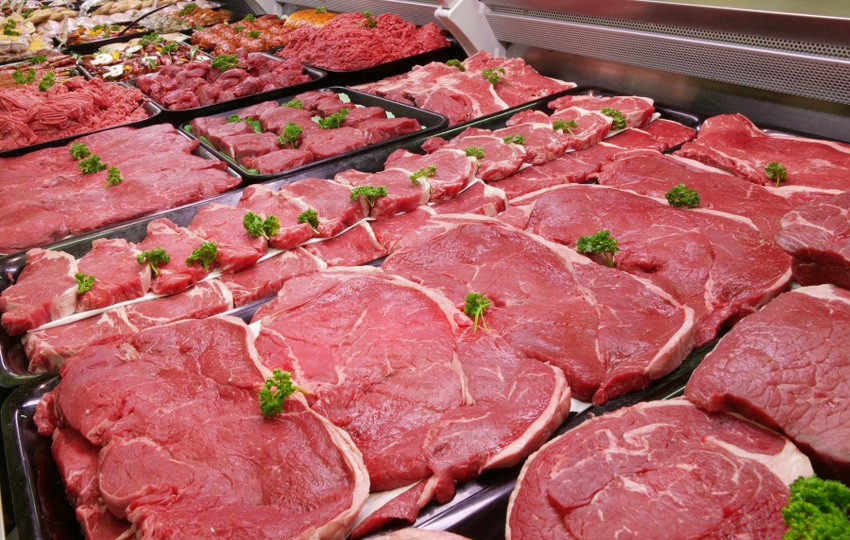Legislation expands, strengthens local meat processing
Strengthening Local Processing Act will expand options for local producers and assist smaller facilities.

The pandemic has underscored the lack of resilience in the meat and poultry processing sectors, shining a new light on a long-standing problem. As a result, consumers have shown an increased interest in buying local products, including meat and poultry. Reps. Chellie Pingree (D., Maine) and Jeff Fortenberry (R., Neb.) introduced The Strengthening Local Processing Act, a comprehensive bill that addresses acute livestock supply chain issues and supports small meat and poultry processing plants.
Under federal law, in order for a farmer or rancher to sell individual cuts of locally raised meats, they must first send their animals to one of a limited number of U.S. Department of Agriculture- or state-inspected slaughterhouses. These slaughterhouses are sometimes hundreds of miles away, and there are far too few across the nation. As a result, many smaller meat and poultry processing plants are booked out for months, and small farms are unable to meet new demand due to a lack of processing capacity.
The Strengthening Local Processing Act will increase the federal share of costs for state inspection from 50% to 65% and for Cooperative Interstate Shipment (CIS) facilities from 60% to 80%, thus encouraging more states to operate their own inspection programs and participate in CIS. Currently, 27 states operate a state inspection program, and eight states participate in CIS.
The legislation would authorize competitive grants to small and very small establishments, state-inspected facilities, custom exempt facilities or new small-scale slaughter facilities for activities related to COVID-19 response and recovery. It would also authorize a new $10 million grant program for colleges and universities to establish or expand meat processing training program and a new $10 million grant program for small and very small establishments or non-government organizations to offset the cost of training new meat processors.
“There is a broadening concern over corporate concentration in the meat packing industry. In a previous time, we had more local meat processing. This bill helps stimulate a return to that previous model, creating a robust market in local economies, linking the farm to the family,” said Fortenberry, ranking member of the House appropriations subcommittee on agriculture, rural development and food and drug administration.
“Small plants play a critical role in ensuring farmers and ranchers are able to process their products, especially during the increase in demand for more local and regional meat and poultry during the COVID-19 pandemic. This bill is a strong step towards ensuring scale-appropriate regulations and support for small plants that maintain and pursue federal and state inspection,” National Sustainable Agriculture Coalition policy specialist Kelly Nuckolls said.
Niche Meat Processors Assistance Network director Rebecca Thistlethwaite said based on her group’s "12 years of research, education and providing technical assistance related to the viability of small and mid-scale meat processors, our organization finds that the provisions of the proposed Strengthening Local Processing Act are thoughtfully designed and will address persistent challenges that our processor members frequently share with us,” . “We think it gets at some of the core and complex challenges in the sector that many other bills have not addressed.”
“The Strengthening Local Processing Act offers necessary resources that small-scale USDA facilities like ours have been advocating for,” said Nichole Sargent, owner of Southpaw Packing Co. Inc. dba Windham Butcher Shop in Windham, Maine. "The appropriate allocation of these resources, as proposed in the Strengthening Local Processing Act, will allow establishments like ours to continue to survive and thrive during these immensely challenging times."
According to Andy Shaw, chief executive officer of Cypress Valley Meat Co. and Natural State Processing of Clinton, Ark., the legislation "has the potential to have a large impact on small processors and farmers. It can help create resiliency in the food supply and additionally support rural communities.”
Kevin Barnhill, owner of the Blair Meat Market in Blair, Neb., called the bill "a winning proposal. Business owners will appreciate the targeted assistance. Farmers will profit from increased market opportunities. Consumers will benefit most of all from access to fresh and local foods.”
"The programs created and increased in this bill are absolutely necessary for the safe processing and distribution of meat in our nation,” said Ben Meyer, co-owner of Revel Meat Co. in Canby, Ore. “As we have seen in the past year, relying on large, consolidated meat processing facilities to dominate our domestic markets leaves consumers at dangerous risk of losing access to safe, clean meat from the local ranchers who produce it.”
Small processors were also excited to see a focus on scale-appropriate regulations and support for education of the next generation of small-scale, niche meat processors.
“It provides financial relief for required food safety activities, reducing the regulatory burden on small companies with limited resources,” said Jim Wells, CEO of North American Bison LLC in New Rockford, N.D. “This financial support for the colleges and universities would be used to develop curriculum and programs in meats and meat processing, resulting in a more competent and resilient workforce for bison processors.”
About the Author(s)
You May Also Like





